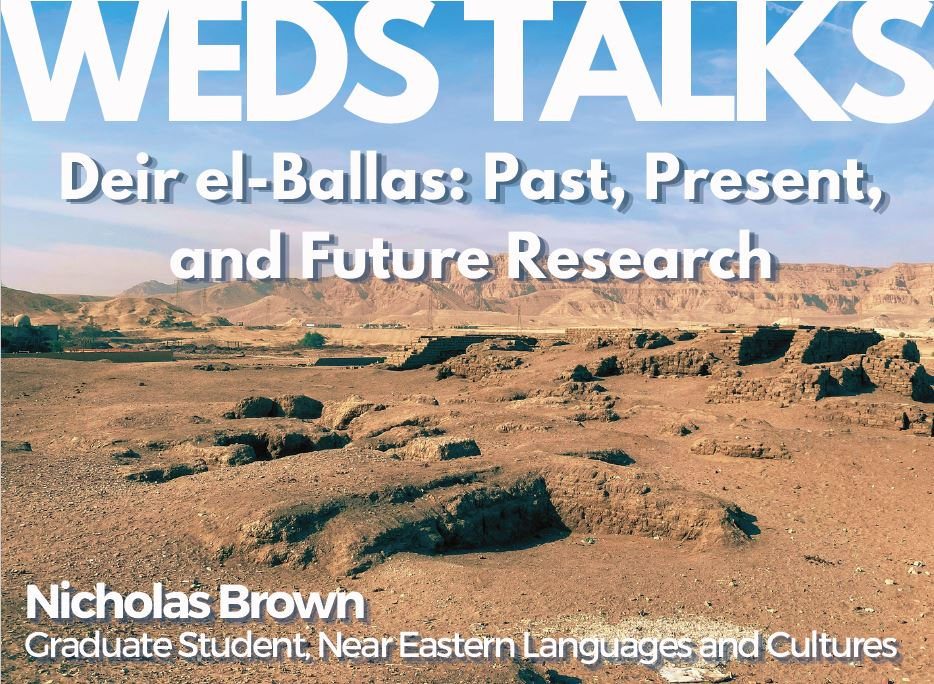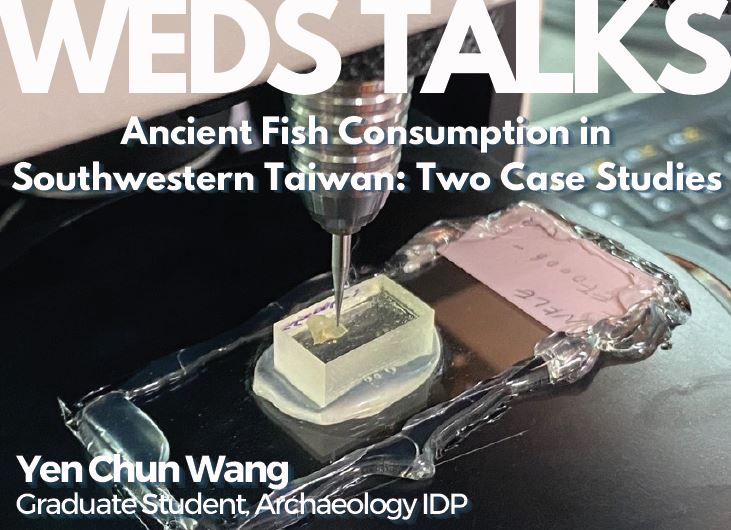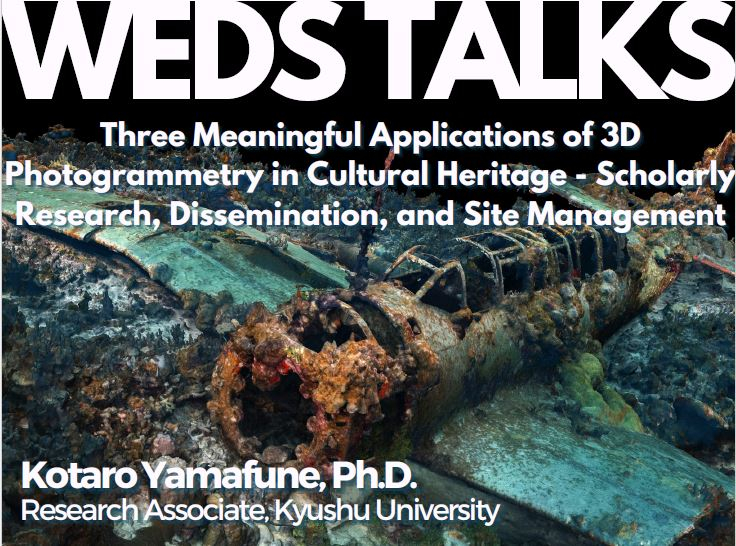Past Events
Interested in Cotsen events? Sign up for our mailing list.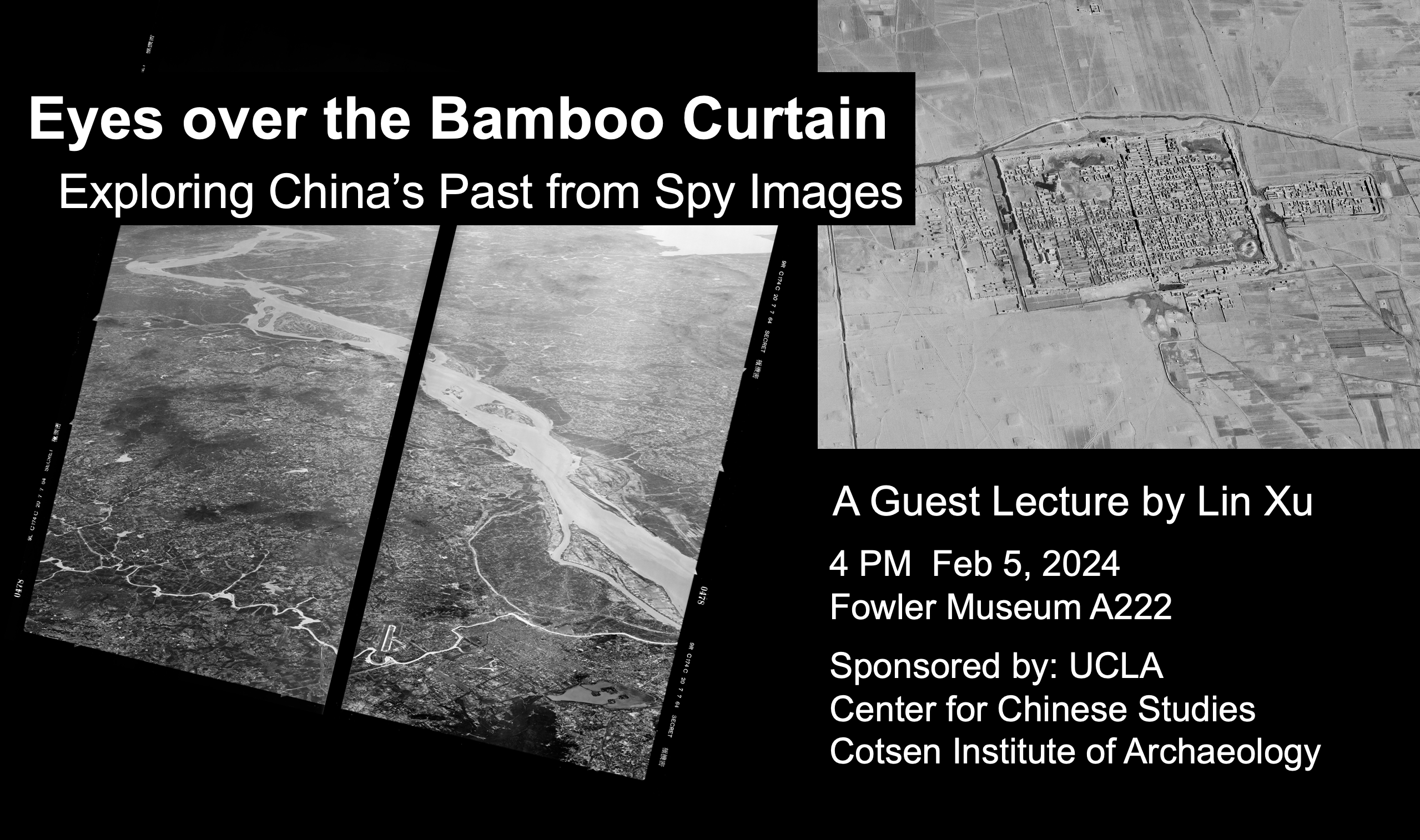
ABSTRACT: During the Cold War the Central Intelligence Agency, with the help of ROC government in Taiwan and ROC Air Force, flew U-2 spy planes missions over Mainland China between 1957 and 1968. A good portion of China was covered. After the films were declassified by the CIA and by the ROCAF, Lin has been doing researches, collecting and indexing these images in the past 15 years. He has been working with the National Archives and Academia Sinica, and providing help and images to researchers in the area of remote sensing archeology, military history and architectural history.
The CIA took these photos right at the dawn of rapid population growth and large scale urbanization of modern China. With these images you are able to peek into China’s past. In this presentation Lin will give a brief history of the spy missions, aerial photograph equipment used, and a good number of image samples over China and some other portions of the world.
BIO: Lin XU is an independent researcher specializing in curating and georeferencing declassified images collected by U.S. military and intelligence agencies using aerial and space-based platforms. In collaboration with U.S. National Archives and Academia Sinica, Lin has put together a large collection of legacy remote sensing images over China to support academic institutions engaged in research on archeology, architectural history, and historical geography. He lives in Boston and works as a computer engineer for an IT company he co-founded.
Contact Sumiji Takahashi
Email sutakahashi@ioa.ucla.edu
Phone 310-825-4169
ABSTRACT: As the capital city and administrative center of the Theban kings during the Hyksos expulsion of the 17th Dynasty (ca. 1650-1521 BC), Deir el-Ballas is of tremendous importance in the history and archeology of Egypt. The site is located on the west bank of the Nile to the north of the town of Ballas proper by the villages of El-Deir and El-Deir el-Gharbi.
The site was first excavated by the Hearst Expedition from the United States under the direction of George Reisner in 1900-1901. In order to clarify the records of that expedition and publish the site, four seasons of archaeological work were undertaken by Peter Lacovara between 1980-1986 under the
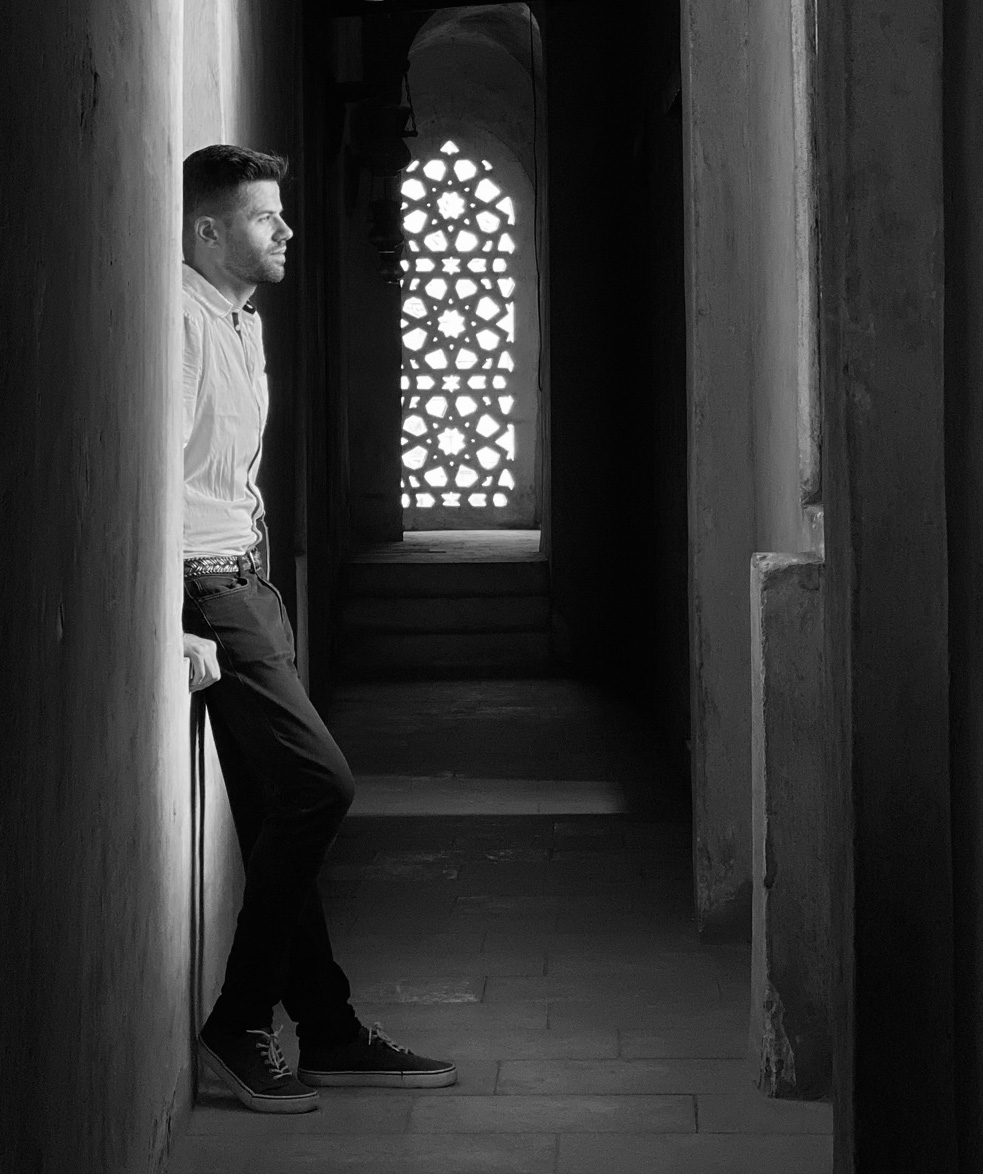 sponsorship of the American Research Center in Egypt and the Museum of Fine Arts, Boston. Since 2017 the Deir el-Ballas Expedition has been working together with the Qena Antiquities Inspectorate to restore and protect these archaeological remains and to preserve this important site for future generations. The goals of the new work of the Deir el-Ballas Expedition are twofold, to publish George Reisner’s original excavation records along with our new archaeological research at the site- to understand the previous excavations and to protect and preserve the ancient monuments.
sponsorship of the American Research Center in Egypt and the Museum of Fine Arts, Boston. Since 2017 the Deir el-Ballas Expedition has been working together with the Qena Antiquities Inspectorate to restore and protect these archaeological remains and to preserve this important site for future generations. The goals of the new work of the Deir el-Ballas Expedition are twofold, to publish George Reisner’s original excavation records along with our new archaeological research at the site- to understand the previous excavations and to protect and preserve the ancient monuments.
BIO: Nicholas (Nick) Brown is an American Egyptologist who has worked as an archaeologist in Egypt since 2011. He received his MA degree in Egyptology from the American University in Cairo in 2016, and currently is an Egyptology PhD candidate at the UCLA.
Contact Sumiji Takahashi
Email sutakahashi@ioa.ucla.edu
Phone 310-825-4169
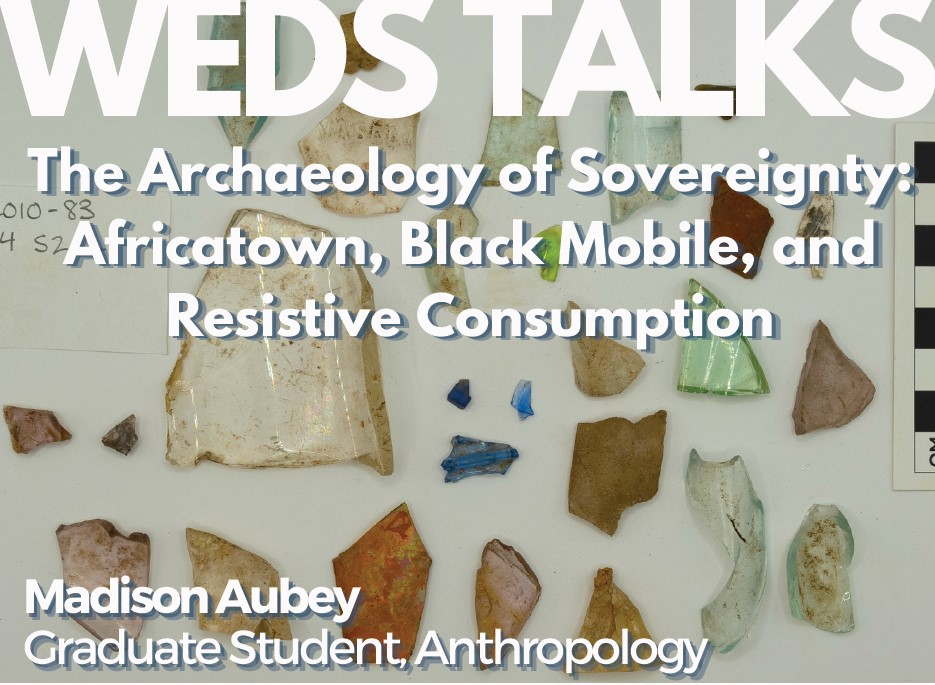
ABSTRACT: As the second most prolific exporter of cotton in the mid-19th century, Mobile, Alabama was built by enslaved laborers. As such, after the Emancipation Proclamation, there was, necessarily, a dramatic reordering of both economic and social structures. In addition to this new economic landscape, newly emancipated Black people gained geographic autonomy, with the ability to live far from the prying eyes of a former overseer or enslaver. By doing a comparative analysis of the archaeological material found at two free Black sites in what was at the time unincorporated Mobile-I explore the different ways in which 'free' Black life was carried out in the American South directly after Emancipation. The two sites, one in Africatown, Alabama, and the other near Magnolia cemetery highlight opposite ends of the spectrum of Afro-diasporic experiences in America at the time (generational enslavement vs. 5 years of enslavement) allowing for multifaceted representation of Black life. Additionally, as I engage with these two sites through collections already excavated, I discuss the value of collections-based research, especially in the archaeology of marginalized communities.
BIO: Madison Aubey received her BA in Anthropology from Columbia University. This past Spring, she completed her MA in Anthropology at UCLA. Her research has focused on broadening academic understandings of the African Diasporic experience in the United States and her work has taken her across the American South as well as the hinterlands of the Republic of Bénin. She is continuing this same line of research, with a focus on foodways, for her doctoral research.
Contact Sumiji Takahashi
Email sutakahashi@ioa.ucla.edu
Phone 310-825-4169
ABSTRACT: This presentation will cover two archaeological case studies around fish in Taiwan that I have been working on with Dr. Chieh-Hsiang Lin at Academia Sinica. Despite fish being one of the most abundant resources on the island, there has been very limited research about it until recently. Our first study, centered around the otolith assemblage in Southwest Taiwan, aims to examine changes in fish resource consumption. Instead of attributing these changes to ancient overfishing, we find that the transition in the otolith assemblage is more likely linked to alterations in the coastal environment. Our second study further investigate the large yellow croaker, an endangered species in East Asia also found in our sites. By comparing fossils, archaeological remains, and modern individuals, we discover that the subgroup around Taiwan has undergone transitions in life history, and their representation is also decreasing compared to the past, similar to the analysis of the subgroup near China.
BIO: Yen Chun Wang is a third year student in the IDP program of UCLA. He received his BA degree in National Taiwan University anthropology and MA degree from UCLA archaeology. His is interested in human environment interaction, such as fish consumption in the past and more recently, sugar production in Early Modern Taiwan.
Contact Sumiji Takahashi
Email sutakahashi@ioa.ucla.edu
Phone 310-825-4169
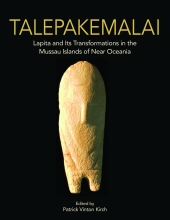 Talepakemalai, in the Mussau Islands of Papua New Guinea, excavated by Patrick Kirch between 1985-1988, is the earliest and largest site of the Lapita Cultural Complex, which was ancestral to most of the later cultures of island Melanesia, Micronesia, and Polynesia. With a unique waterlogged component, Talepakemalai preserved the wooden posts of a stilt house dated to 1300-1100 BCE. Associated with the stilt house was a large assemblage of elaborately-decorated pottery, many of the vessels displaying human face motifs, along with a diversity of artifacts in shell, bone, and stone. Prof. Kirch will discuss these finds, and their significance for understanding the role of the Lapita people in the settlement of Oceania.
Talepakemalai, in the Mussau Islands of Papua New Guinea, excavated by Patrick Kirch between 1985-1988, is the earliest and largest site of the Lapita Cultural Complex, which was ancestral to most of the later cultures of island Melanesia, Micronesia, and Polynesia. With a unique waterlogged component, Talepakemalai preserved the wooden posts of a stilt house dated to 1300-1100 BCE. Associated with the stilt house was a large assemblage of elaborately-decorated pottery, many of the vessels displaying human face motifs, along with a diversity of artifacts in shell, bone, and stone. Prof. Kirch will discuss these finds, and their significance for understanding the role of the Lapita people in the settlement of Oceania.
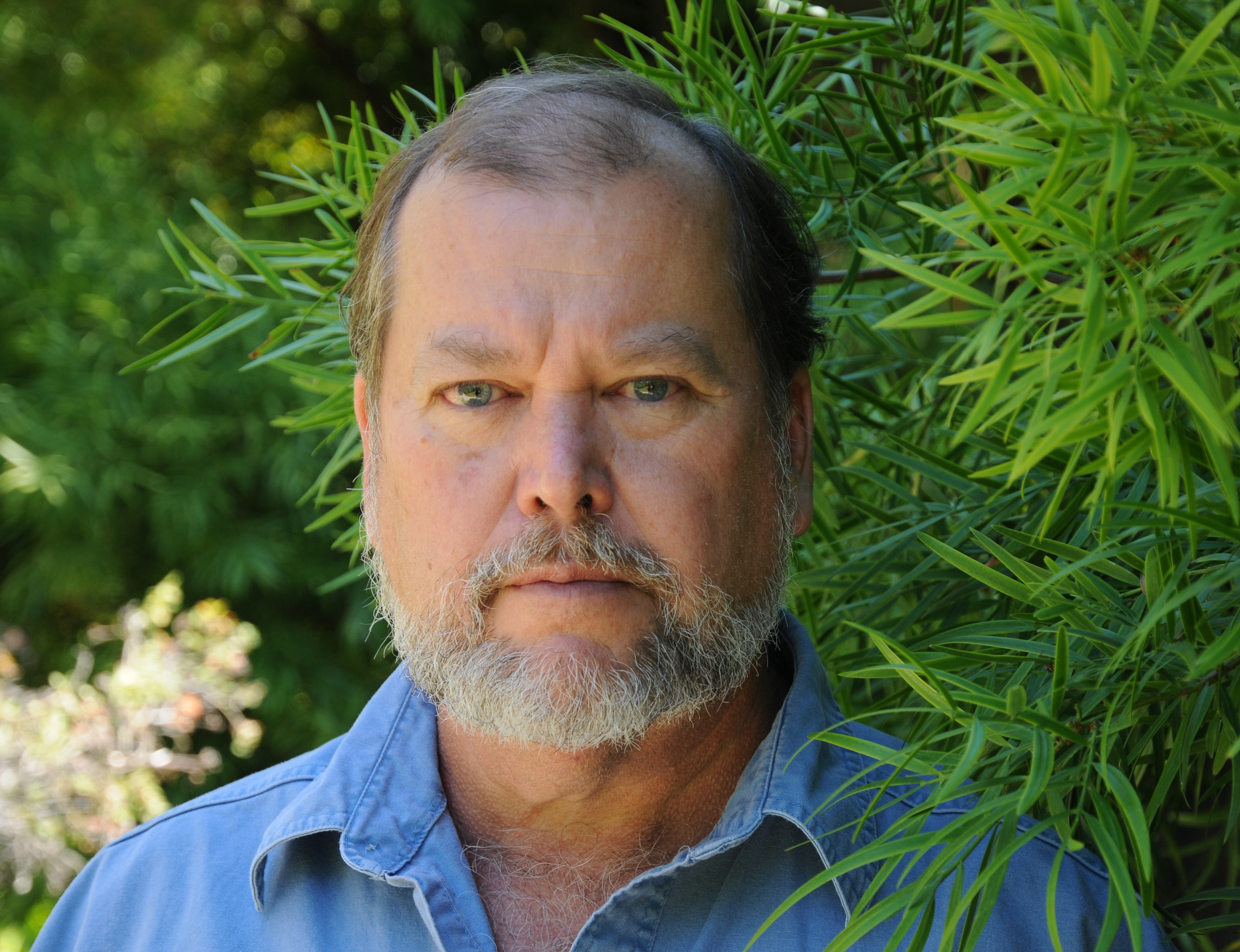 Patrick V. Kirch is Professor of Anthropology at the University of Hawai‘i, Mānoa, and Professor Emeritus of Anthropology and Integrative Biology at the University of California, Berkeley. Born and raised in Hawai‘i, Kirch received his Ph.D. from Yale University. Kirch has held positions at the Bernice P. Bishop Museum, the University of Washington, and from 1989-2014 taught at U. C. Berkeley. Kirch uses islands as “model systems” for understanding both cultural evolution and the complex dynamics between humans and their island ecosystems. He has carried out archaeological fieldwork in the Mussau Islands, Solomon Islands, Tonga, Samoa, Futuna, the Cook Islands, Society Islands, Mangareva Islands, and Hawaiian Islands. Kirch has published some 25 books and monographs, and more than 300 articles and chapters on the results of his research. Among his honors are the John J. Carty Award for the Advancement of Science (NAS), the J. I. Staley Prize (School for Advanced Research), and the Herbert E. Gregory Medal (Pacific Science Association). In 2022 he was named a “Living Treasure of Hawai’i” by the Honpa Hongwanji Mission.
Patrick V. Kirch is Professor of Anthropology at the University of Hawai‘i, Mānoa, and Professor Emeritus of Anthropology and Integrative Biology at the University of California, Berkeley. Born and raised in Hawai‘i, Kirch received his Ph.D. from Yale University. Kirch has held positions at the Bernice P. Bishop Museum, the University of Washington, and from 1989-2014 taught at U. C. Berkeley. Kirch uses islands as “model systems” for understanding both cultural evolution and the complex dynamics between humans and their island ecosystems. He has carried out archaeological fieldwork in the Mussau Islands, Solomon Islands, Tonga, Samoa, Futuna, the Cook Islands, Society Islands, Mangareva Islands, and Hawaiian Islands. Kirch has published some 25 books and monographs, and more than 300 articles and chapters on the results of his research. Among his honors are the John J. Carty Award for the Advancement of Science (NAS), the J. I. Staley Prize (School for Advanced Research), and the Herbert E. Gregory Medal (Pacific Science Association). In 2022 he was named a “Living Treasure of Hawai’i” by the Honpa Hongwanji Mission.
Contact Michelle Jacobson
Email mjacobson@ioa.ucla.edu
Phone
ABSTRACT: Photogrammetry has become an indispensable recording tool for maritime archaeology over the past decade. Thanks to its accuracy and flexibility, photogrammetry and the digital 3D models it generates are not only used as a recording tool and data source but are also applied in 'Academic Research,' 'Education and Outreach,' and 'Protection of Archaeological Sites.' In this talk, I will explain several case studies conducted in different countries and discuss its advantages and potential problems.
BIO: Kotaro Yamafune received his Bachelor of Arts degree in history from Hosei University in Tokyo in 2006. He entered the Nautical Archaeology Program in the Anthropology Department at Texas A&M University in September 2009 and received his Master of Arts degree in August 2012 and earned his doctorate in May 2016. His research interests include shipbuilding in Medieval Europe and the European Age of Discovery, and ship reconstruction both manually and through the use of digital tools such as 3D modeling software. He also focuses on photogrammetric recording of submerged cultural heritage, including shipwreck sites. He also expands his study interest to museology for nautical and maritime archaeology. In September 2016, he found A.P.P.A.R.A.T.U.S. LLC. and became its president. Also, he teaches a course of maritime archaeology at Tokyo University of Marine Science and Technology as a lecturer, and he conducts research at Kyushu University as a research associate. Currently he is helping both terrestrial and underwater archaeological projects and providing workshops in many countries using his skills of photogrammetry.
Contact Sumiji Takahashi
Email sutakahashi@ioa.ucla.edu
Phone 310-825-4169
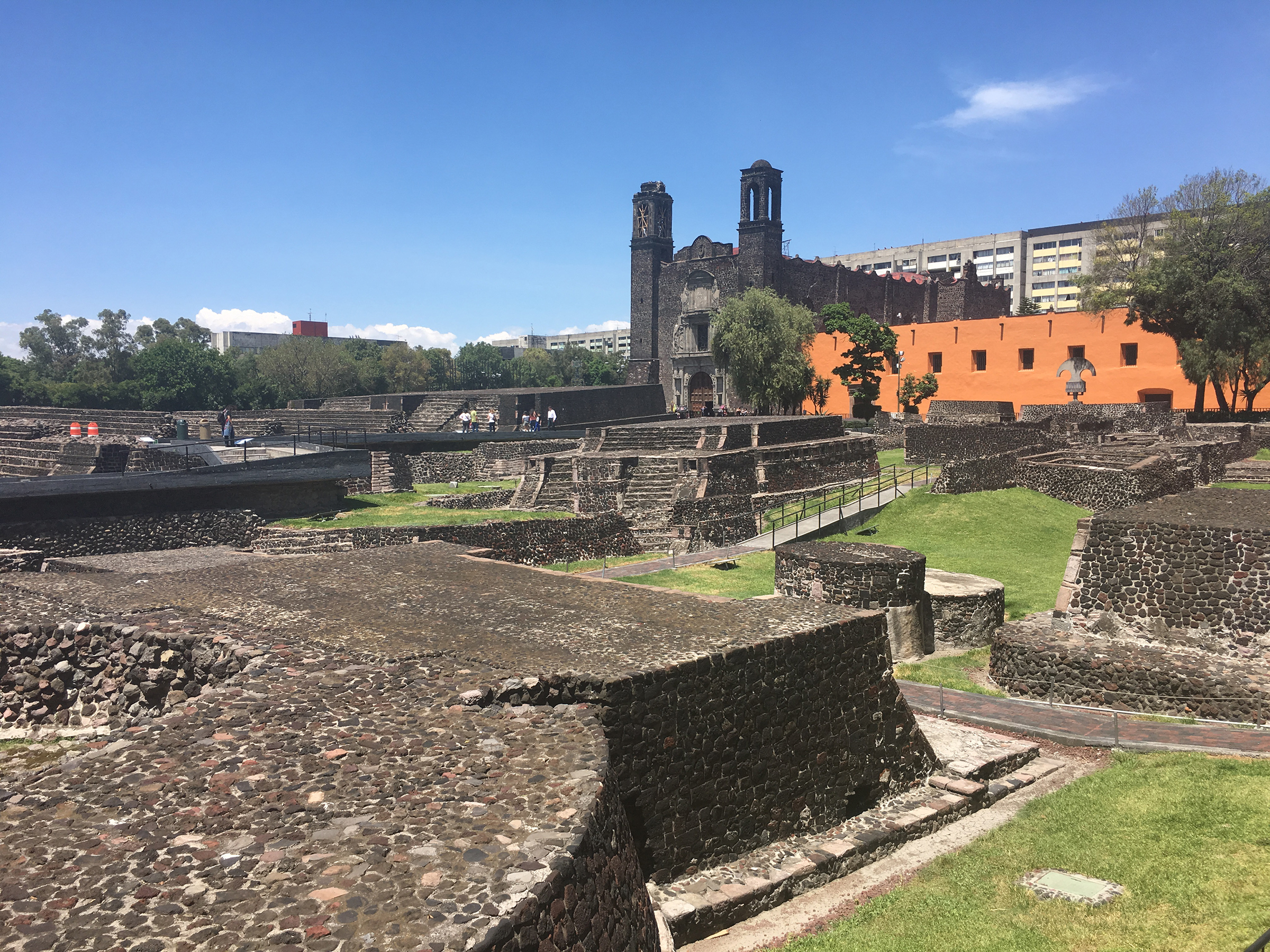 Mexico of five centuries ago was witness to one of the most momentous encounters between human societies, when a group of Spaniards led by Hernando Cortés joined forces with tens of thousands of Mesoamerican allies to topple the mighty Aztec Empire. The violent clash that culminated in the Aztec-Spanish war of 1519-1521 and the new colonial order it created were millennia in the making, entwining the previously independent cultural developments of both sides of the Atlantic. In this talk, Carballo provides a deep history of this encounter based in archaeology and material culture to consider the richly layered cultures of Mexico and Spain and their interweaving in and encounter characterized by conquest and colonialism but also strategic action and resilience on the part of Native peoples.
Mexico of five centuries ago was witness to one of the most momentous encounters between human societies, when a group of Spaniards led by Hernando Cortés joined forces with tens of thousands of Mesoamerican allies to topple the mighty Aztec Empire. The violent clash that culminated in the Aztec-Spanish war of 1519-1521 and the new colonial order it created were millennia in the making, entwining the previously independent cultural developments of both sides of the Atlantic. In this talk, Carballo provides a deep history of this encounter based in archaeology and material culture to consider the richly layered cultures of Mexico and Spain and their interweaving in and encounter characterized by conquest and colonialism but also strategic action and resilience on the part of Native peoples.
6pm Lecture
7pm Reception
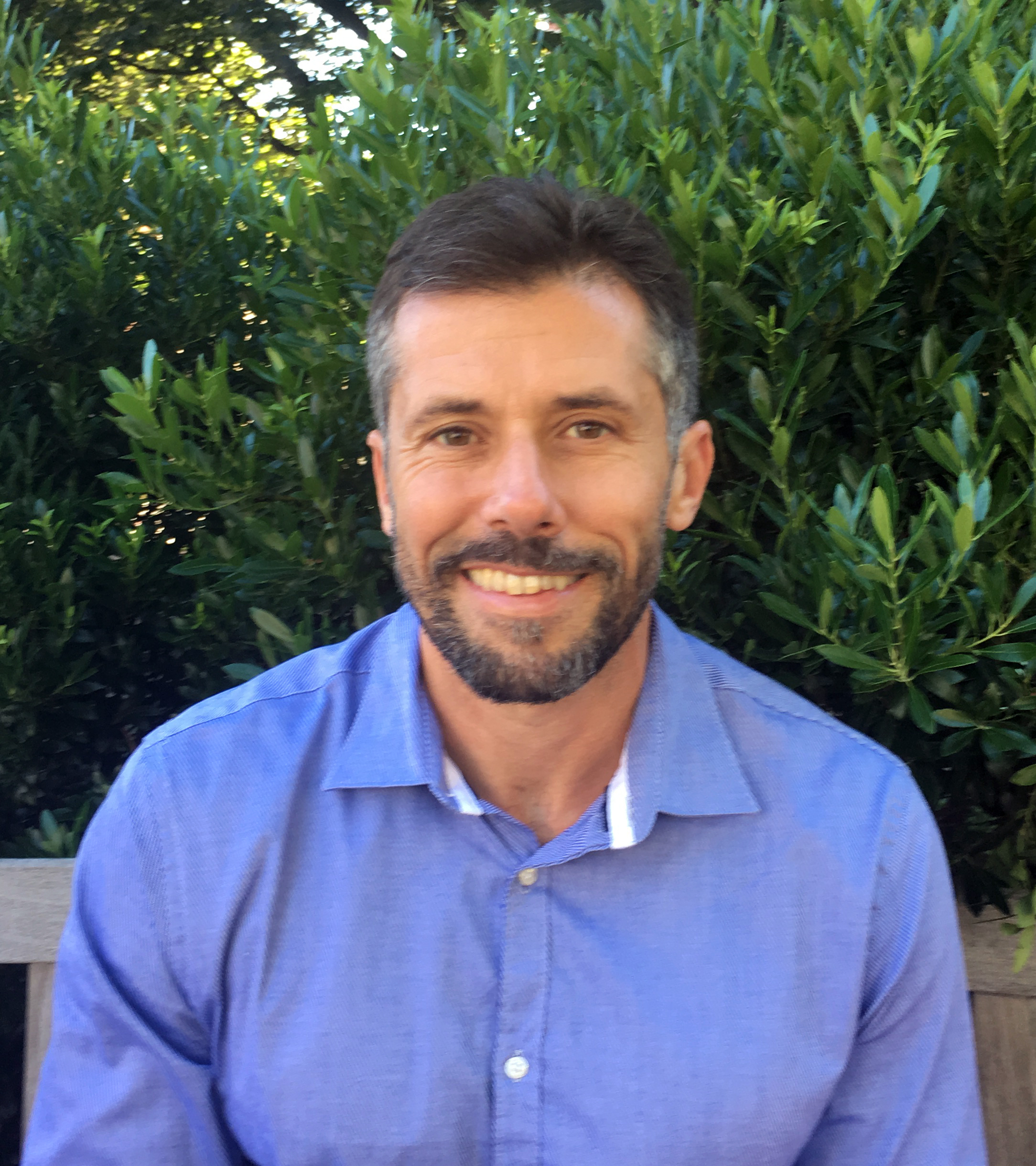 David Carballo is Professor of Anthropology, Archaeology, and Latin American Studies at Boston University. He completed his graduate training (2001 MA, 2005 PhD) at UCLA and specializes in the archaeology of Latin America, especially central Mexico and with topical interests in households, urbanism, religion, social inequality, and working with contemporary communities in understanding ancient ones. Current investigations focus on Teotihuacan’s Tlajinga district, a cluster of non-elite neighborhoods on the periphery of what was then the largest city in the Americas. Recent books include Urbanization and Religion in Ancient Central Mexico (2016), Teotihuacan: The World Beyond the City (ed., 2020), Collision of Worlds: A Deep History of the Fall of Aztec Mexico and the Forging of New Spain (2020), and Collective Action and the Reframing of Early Mesoamerica (2023).
David Carballo is Professor of Anthropology, Archaeology, and Latin American Studies at Boston University. He completed his graduate training (2001 MA, 2005 PhD) at UCLA and specializes in the archaeology of Latin America, especially central Mexico and with topical interests in households, urbanism, religion, social inequality, and working with contemporary communities in understanding ancient ones. Current investigations focus on Teotihuacan’s Tlajinga district, a cluster of non-elite neighborhoods on the periphery of what was then the largest city in the Americas. Recent books include Urbanization and Religion in Ancient Central Mexico (2016), Teotihuacan: The World Beyond the City (ed., 2020), Collision of Worlds: A Deep History of the Fall of Aztec Mexico and the Forging of New Spain (2020), and Collective Action and the Reframing of Early Mesoamerica (2023).
Contact Michelle Jacobson
Email mjacobson@ioa.ucla.edu
Phone
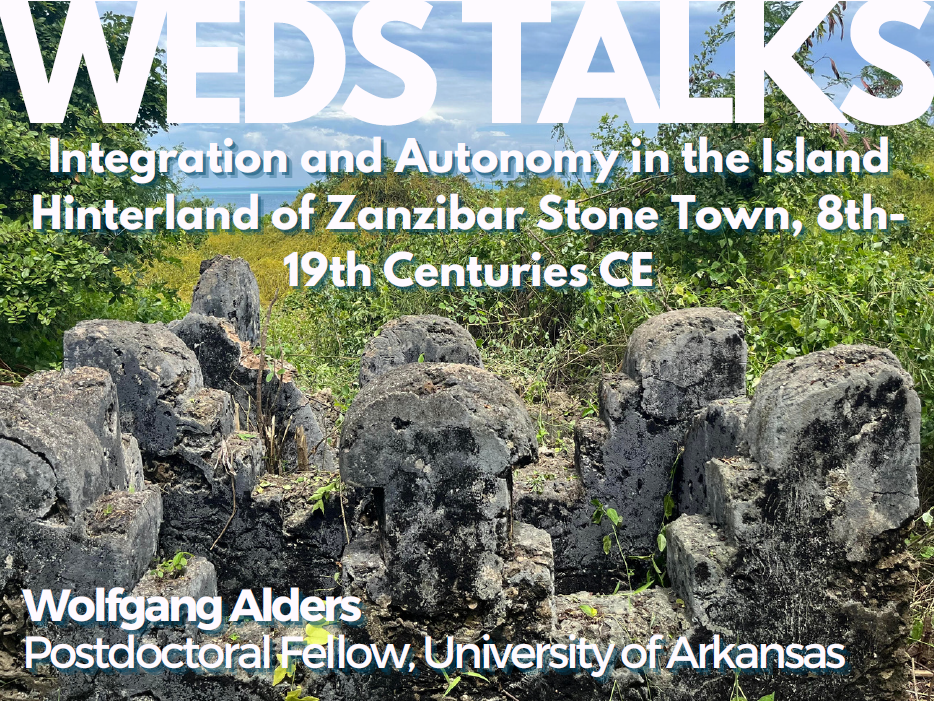
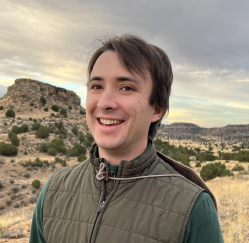
ABSTRACT: This presentation explores sociopolitical transformations on the East African Swahili coast through a consideration of urban and rural interactions on Unguja Island, in Zanzibar, Tanzania. From humble beginnings as a fishing village in the 10th century, the UNESCO world heritage site of Zanzibar Stone Town on Unguja grew into one of the wealthiest urban centers in the western Indian Ocean by the colonial era. Systematic field surveys guided by environmental models within the interstices of modern development around the town have enabled an investigation of social differentiation in the island’s hinterland. Surveys in 2023 recorded 55 new archaeological sites that help clarify the socioecological dynamics of early settlement on Unguja’s coasts by iron-working agriculturalists, the expansion of precolonial village communities inland, and transformations in the rural countryside associated with early colonial incursions. Ceramic distributions and settlement patterns attest to the integrative tendencies of rural Swahili communities with respect to emergent accumulations of social wealth. Integrative bottom-up activities of rural people may have shaped the trajectories of social complexity in coastal East African societies, specifically the long persistence of heterarchical political systems
Contact Sumiji Takahashi
Email sutakahashi@ioa.ucla.edu
Phone 310-825-4169
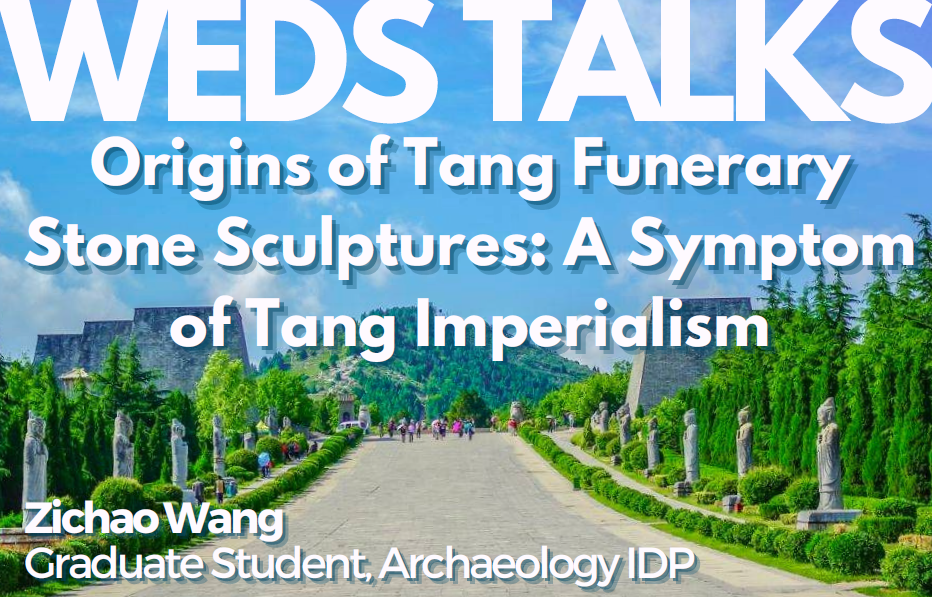
ABSTRACT: The Tang dynasty (618-907 CE) undoubtedly marks a special period ofChinese history for its cultural inclusiveness, marvelous artistic achievements, andunprecedented international influence. This talk will examine a special category of Tangimperial art: the funerary stone sculptures placed in front of the mausolea of emperors andtombs of high-level officials. By looking at the precedents of these finely produced anddeliberately displayed statues, both from Han to Tang, and from East Asia to Inner Asia, Iargue that all the categories of Tang funerary stone sculptures had come into being in aregionalist manner at least since the Southern and Northern Dynasties period (420-589CE), whereas the effort to incorporate these distinct regional traditions reflects this newlyborn empire's ambition of creating a "Culture of Ours."
BIO: Zichao Wang is currently a Ph.D student at the Archaeology InterdepartmentalProgram at UCLA. He graduated from the Chinese University at Hong Kong and McGillUniversity for two masters' degrees. Therefore, he is now a complete historian and a partialarchaeologist. With a focus on the political and cultural history of early China, he has beenwriting broadly on various topics of Chinese history. At UCLA, he attempts to fullyincorporate different sources and approaches to achieve a more comprehensiveunderstanding of Chinese history, which is, inevitably, also a part of world history.
Contact Sumiji Takahashi
Email sutakahashi@ioa.ucla.edu
Phone 310-825-4169
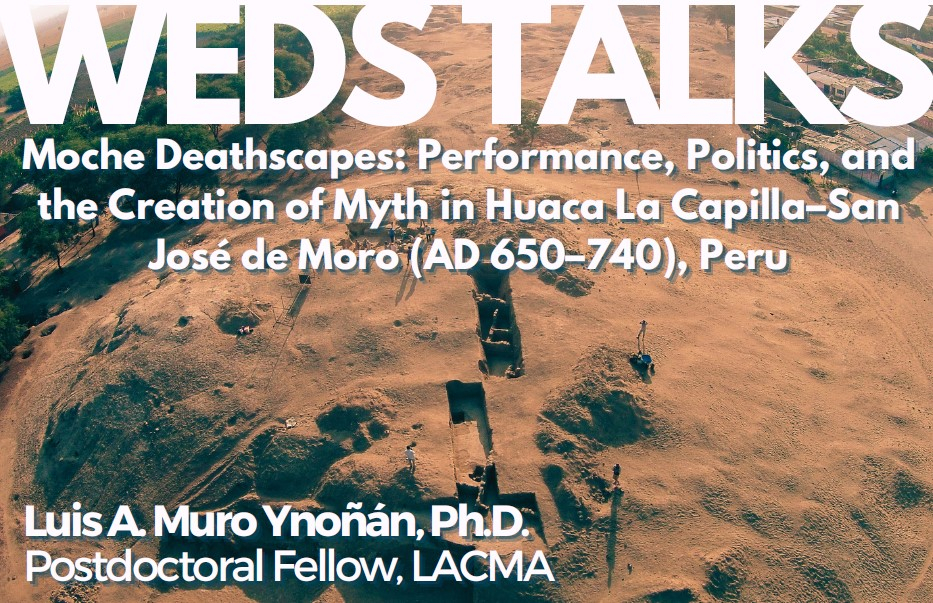
ABSTRACT: Death in the Moche world has traditionally been examined from object-centered perspectives that have favored discourses about hierarchy, status and power. However, such perspectives have left behind discussions about deathscapes and their role in the production of ancestors and the (re)distribution of political power. Based on my excavations at Huaca La Capilla, a monumental structure located in the Late Moche (650-850 CE) cemetery of San José de Moro, Jequetepeque Valley, I examine the dynamic and changing nature of mortuary landscapes and their monuments. I argue that Huaca La Capilla was the locus of body-centered performances that preceded the burial of Moche elite individuals. These performances were, ultimately, involved in the (re)production of myths of Moche ancestrality and particular notions of time, history, and construction of the being that gave political legitimacy to ruling groups in times of deep crisis.
BIO: Luis A. Muro Ynoñán is currently a Postdoctoral Fellow at the Los Angeles County Museum of Art and a Visiting Lecturer in the UCLA Department of Art History. Previously, he was a Postdoctoral Scientist at the Field Museum and a Pre-doctoral Fellow at the Pre-Columbian Studies program at Dumbarton Oaks. He holds a MA and Ph.D. from Stanford University and a BA and Licenciatura from Pontifical Catholic University of Peru. As a Peruvian archaeologist, Dr. Muro is broadly interested in the relationships between performance, death, and politics in the ancient Andes, integrating anthropological and performance theory with multi-scalar methods of spatial analysis and absolute dating techniques. He is now leading the Úcupe Cultural Landscape Project in Lambayeque, Peru, a multidisciplinary project that seeks to study the origins of Moche religion in relation to climatic fluctuations in the Andes in the first millennium CE.
Contact Sumiji Takahashi
Email sutakahashi@ioa.ucla.edu
Phone 310-825-4169
- ‹ previous
- 8 of 50
- next ›



